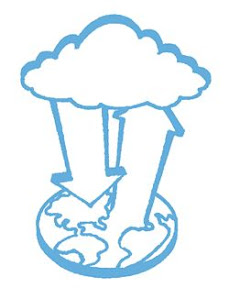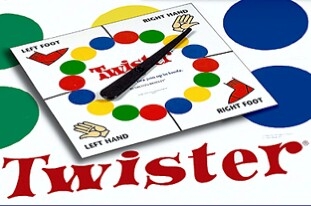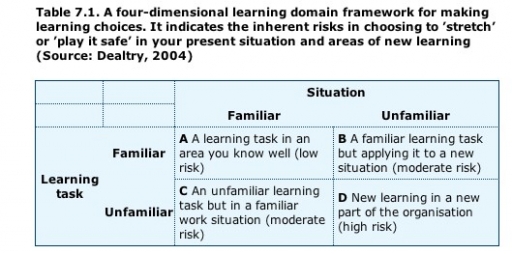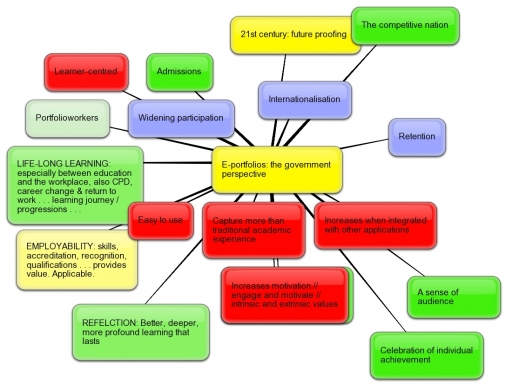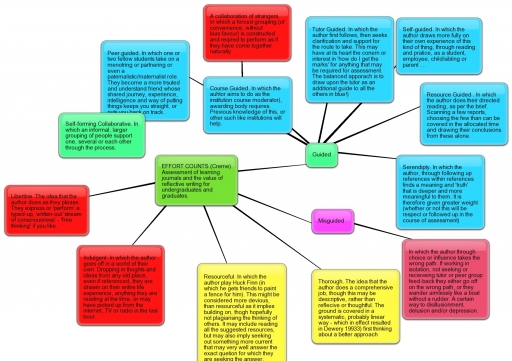Or a guinea-pig chewing an electric cable behind the TV.
Same thing
Strange things are going on with my head.
The synapses are snapping.
This is the state of my mind.
It's exciting. It's exploitable.
The internal goings on of my cerebellum have gone from guinea-pig to hedgehog via a Frankenstein-like jolt of the old juice.
Last like this?
Undergraduate 1983.
(And most of yesterday, and the day before of course).
This is what studying does to my mind. It's taken eleven months in OU Land. The buzz began ... a few weeks ago.
It is like going from clueless first year undergraduate to the second year. Even online, you need to get the lay of the land. Even now that are vast swaves of OU activities, e-tivites, buttons, bolt-holes and affordances to discover, chew over, toy with and adopt, or adapt and move on, or stay with, or who knows what.
Funny. I never use the OU library anymore.
Once signed I just Google. Same thing? Instance ... rather than the time it takes to make a coffee.
Web-entrepreneur 2000. I was buzzing then too, mind and on two postgraduate courses - the OU (a somewhat earlier version of Open and Distance Learning) that in technology terms was like using a hand-pushed lawnmower to cut a path through a waterlogged meadow full of cattle. The mismatch between cutting-edge practice with a leading web agency and the course was the difference between reading an e-book or going into the Bodleian and thumbing through a vast, leather-bound index.
The best place to sthink on the planet. At a desk surrounded by ancient books ... with a lap-top. It's as if you are sitting inside the minds of everyone who has ever thought there before. Now we can get an inkling of this when you feel like minds are listening. Are they?
I feel the desire once more to spill the content of my mind ... to empty every moment I have sought to catch. Why? Not just because I can (although I appreciate there are plenty of people who keep diaries all there lives. But because of the way it wakens up your mind to a version of a moment in your past. These moments flip and change perspective as you revist them. Most odd.
"It's a matter of love; the more you love a memory the stronger that memory becomes."
Nabakov.
Note the time. I have slept in the last 24 hours.
About four hours between 15h30 and midnight in two or three chunks.
Actually I've buzzed a lot over the years. It's who I am, when I'm being me at my best.
Skieasy was an interesting idea.
I still have the chess set I made out of a selection of bottled-waters. Dasani, that Coca-cola flop, is the King of the Black Pieces. I cheated a bit, Copella with their squared off bottles are the Castles and I had to use Fabreze for the Horses.
INSERT PIC HERE
There are currently several voices in my head, people from the past, smiling and asking questions.
I'm being emotive and passionate about some new fangled way to do use video and they're listening. I feel this way about the Internet. My head is firmly back in 2000, with the electricity of an undergraduate and the knowledge of a PhD. (I could have one if the various courses I've done had been or could be validated and LinkedIn). Eventually.
I intend to study for life, life-long learning - literally.
I'm planning a module beyond the MA in Open and Distance Education that I'll complete in October 2011.
Foundations in research probably rather than a different subject, though in good time Modern History (yet again), and Geography (yet again).
E-learning enables this
Fine Art can never happen; I can't hunker down like that. (Unless I can do Fine Art via an A3 sized tablet? If it's good enough for Hockney, it's good enough for art students. Fine Art as a e-learning course. (Now there's a challenge. And an opportunity.)
Never say never when it comes to e-learning. Someone will be running an e-learning Fine Art MA within the year. You could use a Kinex to draw onto a tablet rolled like a piece of Clingfilm onto a pane of glass. Observed at work by your tutor a million miles away (or a few hundred at least). You see it is possible.
Never say never when it comes to e-learning, which is why I propose a new module for the MA in Open and Distance Education. It's called 'The E-learning Entrepreneur.' Any one listening? (Not at 2h05). I'll linkIn with it and see what bubbles up from the digtal hyrdrosphere.
I don't care if it takes six years for each one of these courses, I'll be around for a long while yet.
My grandfather made it to 97 and never lost his marbles. Bless. He died with some thoughts on Newcastle United and a swig of Newcastle Brown Ale (he'd worked in brewing from the age of 14 to retirement).
My mind wanders. Good. It should. So should yours.
New thinking doesn't idle around in one pocket of your subconscious, it dances like a Minx feeding on your the maelstrom of your mind.
And I'm yet to say what I sat down to write. Right.
Doodles on backs of envelopes. I have a lot of envelopes. I must have invested in a large supply a decade ago. Stick down the back and use them for notes. Light, a soft write with a gel-pen. Takes a doodle. A gem. An idea.
This process started 48 hours ago.
One image. A second. (The PDP thermal idea). And since then I've been revisited by an idea I had in .... 1998, I suppose.
ADD SKETCH HERE ... currently on
a) the back of an envelope
b) on a piece of scrap wallpaper (very good for doodles as you can spread wide)
and c) in my head (which should be in bed)
Title, Synopsis, Abstract, Review, Précis, Student Notes, Book, Book + References.
This is a volume control for 'volume' of words rather than sound.
Depending the time you have to engaged with the contents of the author's (or authors' heads) you skate or roll this slider back and forth until you hit on a what you're prepared to take in. You can always expand, if the mind takes you there ... you can always roll into the synopsis if your train comes in or you see an email you're prepared to answer.
(Email, I'm starting to treat it like the old postal service - two deliveries a day, at a time to suit me. So before breakfast and after lunch. If you want me otherwise phone.)
Where was I? So, text volume control thingy.
I was just learning Dreamweaver, on a Mac, probably an LCII or something c.1998.
Maybe or earlier. TBT hadn't been born I was sleeping where he'd shortly be sleeping (actually I was sitting where he was born a few weeks later, at home, caught by me some time before the Midwife made it over from Cheltenham. Another story.)
I won't have a record of it, I was months away from blogging. Unless, which is likely, I was keeping a diary off-line. Would that be 'logging?It'll be just as lost though as it'll be a floppy disc. Or were there CDs by then? Or possibly an IOMEGA Zip drive?
And now we have LCD TVs the size and thickness of a postage stamp.
Re-reading 'Contemporary perspective in E-Learning Research' can't help my sleeplessness.
Far from boring me to sleep, which it did six months ago, I find single words are scorched into my forehead and sentences are like liquid gold being poured down my ear. Oh dear. I think I understand it.
I commit a book crime.
Historically I have always read a book and taken notes at the same time. This goes back to Oxbridge Entrance exam reading lists and beyond.
Get it while it's hot on the first shot.
I did this with Conole et al in August.
I could even read those notes, but those notes WERE WRITTEN BY SOMEONE ELSE.
So I have to start over, this is TAKE TWO.
Anyway.
The sacrilege is the use of coloured Marker Stabilo Market pens on the pages of the book. This is because I'm treating the book as if it isn't there, as if it is in an iPad (I don't have one, I'll give me my address if you feel I should have one).
Yes, I am using a highlighter pen on the paper-based text because I've got so used to doing this in e-journals exported into Word.
Of course, this Stabilo Pen should DOUBLE as a TEXT READER so that said highlighted words could be drawn straight into my laptop and quoted here ... with the link and correct Harvard Reference put in place for me too. Pretty please. Tech person reading.
(Do tech people read? I suspect they call it something else. Scan?)
Oh heck. Not another idea. It's only 1h36. (or was when I started. That was nearly an hour ago. I don't edit, I know not how, I ellaborate.)
I have this fear that having an idea is pointless, because whatever you can think of someone has done it before.
Which makes this a race, catching wave after wave after wave of information as it comes in on the digital ocean, hoping, believing, that from time to time it'll be a big wave, my wave and I'll ride it like a pro-surfer. Enough. I need a coffee. That'll send me to sleep.
Anything's possible.
I look at this, my invention, my interpretation of how Personal Development Planning can lift a life, raise your spirits, send your career into a controled cycle of advancement and I want to sing about it. I want to be on this ride and bringing others along with me.
What can go wrong?
Coffee poisoning.
So, this Microsoft guy who is recording every moment of his day (and night? and ablusions?). You have to be at the head of the team, not the pond fodder. I gave this a momentary go voice recording three one hour swim coaching sessions. I am yet to listen over. Perhaps I'll do it once to see what lessons I learn.
On the other hand, someone interested in coaching swimmers may listen to the lot of it. And with nothing in vision there are no Safeguarding Children issues ... I consciously only used swimmer's names once I had hit pause.
My coffee's cold.
Do I warm it up? I'll not sleep. I haven't exhausted the possibilities.
A swimming pool beacons.
Once was the time I swam every day. I'll do so again. I can subdue my mind only if I sink the body around it.

